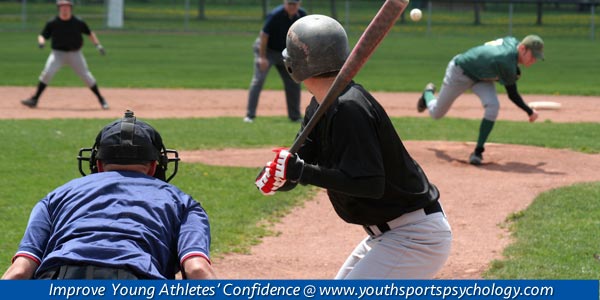Parental Pressure on Sports Kids
Sports parents, did it ever occur to you that spending too much time watching your kids practice their sport makes it hard for them to take risks and grow as athletes?
Huh? You might ask. What’s the link between watching them practice and ensuring they take risks? And what are the benefits of risk-taking, anyway?
Read on…. You’ll learn what former pro baseball player Tommy Weber has to say about this topic.
Weber is now coaching kids’ instructional clinics. He thinks parents spend too much time hanging around sports practices in ways that inhibit kids’ ability to perform and have fun.
“If we truly want kids to play—that’s an important word—playing—there is a certain level of supervision that helps kids participate and enjoy themselves more. When Mom or Dad is there, I see kids looking to see if Mom or Dad saw them miss the ball.”
The truth is, he says:
“Having parents attend practices too often can put pressure on the kids.”
“They know their dad is up there making sure they do it the way their dad told them to do it. It inhibits them for reaching for something beyond their grasp and something they wouldn’t do within the confines of parental supervision,” he says.
As a coach, Weber wants his kids to take risks, try to do difficult things, make mistakes and feel safe.
“What parents want is for kids to do well,” he says. “It puts a lot of pressure on the kids.”
Here at kidssportspsychology.com and youthsportspsychology.com, we agree that it’s critical for kids to take risks. When kids take risks and make mistakes, they learn and grow. Take ice skating, for example. If kids aren’t willing to fall down, it’s unlikely they’re going to learn how to skate!
If you want your kids to take essential risks, it’s important for you to let them develop their own passions. Says Weber.
“My father was also a professional baseball player. He allowed me to develop my own passion. A parent’s job is to find something your kid loves to do and encourage him,” he says.
You should also be very careful about how you give your athletes feedback. If you criticize them too much, they’ll avoid making mistakes. That means they’ll start playing tentatively and will avoid taking risks. They’ll play scared. That’s not a good recipe for learning and growing!
What’s more, be sure to find positive things to say about your child’s performance. If they feel supported by you, they’re more likely to try new things. They’ll play or perform with more creativity, which will likely lead to important growth.
Related Articles on Youth Sports:
- Where Does Sports Kids’ Pressure Come From?
- How Do Parental Expectations Hurt Young Athletes?
- Helping Sports Kids Who Feel Pressured By Adult Values
*Subscribe to The Sports Psychology Podcast on iTunes
*Subscribe to The Sports Psychology Podcast on Spotify
Help Young Athletes Boost Confidence in Sports!
Every day, we receive letters from parents like you who want their children and teens to excel in sports. However, these parents can see fear, doubt, and frustration on the faces of their kids who struggle with the “inner” game of sports. But these parents have no idea how to help their kids overcome the worries, expectations and self-defeating thoughts that prevent their young athletes from feeling confident and successful.
You can benefit from our 15-plus years’ of work in sports psychology and sports parenting research. Now, you can tap into our secrets to sports success through a cutting-edge, 14-day program that helps young athletes overcome the top “mental game” challenges that sports parents face—and the top challenges young athletes face.


